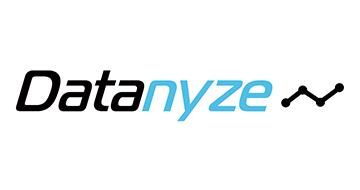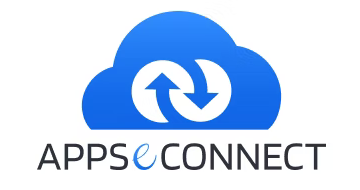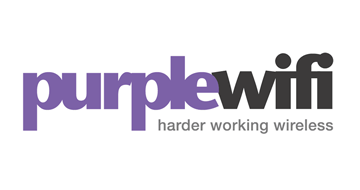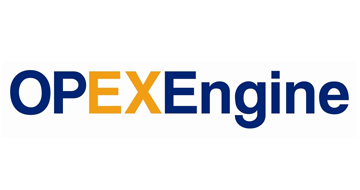
| Starting Price | $29/mo |
|---|---|
| Pricing Model | Subscriber based |
| Free Trial | Yes |
| Free Version | No |
Discover the best business intelligence software solutions to gain valuable insights and make data-driven decisions. With the right BI software, you can analyze complex data, identify trends and opportunities, and streamline your decision-making process. Our top picks represent the best value business intelligence software on the market.
Are you looking for the best business intelligence software to help your business succeed? Our experts have identified the best BI software solutions available today. Each of our top solutions has been highly rated for its functionality, ease of use and value for money.

| Starting Price | $29/mo |
|---|---|
| Pricing Model | Subscriber based |
| Free Trial | Yes |
| Free Version | No |

| Starting Price | $129/month |
|---|---|
| Pricing Model | Subscriber based |
| Free Trial | Yes |
| Free Version | No |

| Starting Price | Contact for price |
|---|---|
| Pricing Model | Quotation Based |
| Free Trial | No |
| Free Version | No |

| Starting Price | $ 28 /mo |
|---|---|
| Pricing Model | Per user, subscriber based |
| Free Trial | Yes |
| Free Version | No |

| Starting Price | Contact for price |
|---|---|
| Pricing Model | Subscriber based |
| Free Trial | No |
| Free Version | No |
Business intelligence (BI) software refers to a range of business analytics solutions employed by companies to collect, analyze, and transform data into visualizations such as graphs, charts, and dashboards.
Furthermore, BI combines business analytics, data mining, data visualization, data tools, and infrastructure, enabling organizations to make effective data-driven decisions. Unlike competitive intelligence, which examines data from outside sources, a BI solution draws internal data into an analytics platform. It constructs a perception regarding the inner workings of a business.
If you want to know which BI software to choose but don’t know where to start, look no further. There is a vast array of BI software available, but our team of experts has done the research so that you don’t have to. Our list of the best value BI analytics software is the place to start.
When examining the use of data analysis and reporting, it is evident that big data plays a crucial role in developing business performance and success. Such data can be ambiguously interpreted. For new business owners, in particular, the need for business intelligence reporting is essential.
To provide understandable data and useful data-driven feedback, it is recommended that BI reporting solutions should be incorporated into any business plan, regardless of industry.
The creation of BI analytics reports allows you to interpret incoming and past data to draw meaningful conclusions regarding the future course of action that your business should take.
Specifically, BI analytics software accumulates data and performs various analyses to identify market trends. Then, this information can be compiled and organized into pie charts, histograms, tables and so forth. The generation of visual forecasting models helps users gain a better understanding of the inner operations of a business.
Such advanced reporting solutions offer end-users the ability to formulate quick and beneficial decisions. As a result of the work of BI analytical software, these decisions are based on customer purchasing patterns and market trends. Additionally, businesses can forecast prospective revenue and implement protective measures against any likely challenges. By using visualizations to identify connections between variables, these reports enable users to understand data trends over a given time period.
IT executives, managers, operational and other personnel can refer to these reports to make well-informed decisions, as they are now empowered to identify new opportunities to reduce costs and stop inefficient practices.
With the right BI analytics reports, it is possible to push companies toward greater efficiency and smoother operations. These preventive strategies would not be possible without business intelligence.
Business intelligence analytics is an all-encompassing term. It alludes to the processes and methods for collecting, storing, and analyzing data drawn from business operations or activities, with the goal of enhancing a business’ performance. Consequently, businesses have a comprehensive depiction of their practices, enabling the formulation of beneficial future courses of action.
In recent years, BI analytics has developed to include more processes and activities to enhance performance. Such processes include:
A BI solution is a combination of strategy and technology for collecting, analyzing, and interpreting data from internal and external sources. The result provides information and analysis of the past, present, and future state of the subject being examined. This innovative analytics software can produce a multitude of benefits:
Customer phone numbers, and email addresses can be stored in one place. You will be able to query databases and produce reports that consider data from numerous perspectives. Specifically, you can manipulate data in several ways such as combining data and refining data into single metrics from combinations. You can combine specifics such as SKU, salesperson, expiry date, and purchase date.
You will be able to gain greater insight into your demographic as well as simplify your systems to ensure that a large amount of related information is in one place. Neuro-Linguistic Programming (NLP) can allow your business to establish rules to track keywords or phrases such as a business name to ascertain how consumers utilize such language. Additionally, you will be able to measure customer sentiment and value and learn about purchasing trends that can inform future products.
BI analytics can examine Customer Relationship Management (CRM) data to reveal KPIs, strengths, and limitations.
The transformation or visualization of data into a pictorial depiction such as a graph or a chart, offers an instant interpretation of significant metrics. This will allow you to see aspects of your data that are invisible within a traditional spreadsheet.
Using current data as its basis, predictive BI analytics gauges the likelihood of future events allowing you to forge a considerable competitive advantage over competitors.
Predictive analytics provide you with detailed models and can incorporate artificial intelligence (AI) and machine learning (ML) to simulate and learn from prior occurrences and predict prospective consequences.
You can improve price optimization and sales by analyzing the number of sales and the trends associated with consumer purchases. Additionally, you can obtain, manage, and evaluate data in order to save time and resources. Data such as supply chain metrics facilitate the optimization of processes. Additionally, business intelligence analytics also contribute to the fulfillment of service level agreements as well as improving distribution routes.
It is difficult to find the best BI analytics tool to suit all your business needs. We recommend the following options based on the business type.
Due to often limited monetary resources, BI can enable multiple analyses across various departments and roles in SMBs, rather than employing multiple staff to conduct such roles. The use of BI solution tools in small businesses can facilitate the transition from datasets to decision-making. Consequently, costs can be decreased because of understanding the business processes more effectively. What’s more, there are many affordable BI analytics options. This has led to a growing number of SMBs investing in BI analytic solutions.
Large businesses utilize BI analytics software to mine data from various databases and applications on a continual basis. Specifically, these tools provide added insight into sales, marketing, finance, human resources recruitment and overall operations.
In general, costs can range from $10 per user per month to tens of thousands per annum for large corporations. Notably, costs always depend on the size of the company, the purpose of the analysis, the results to be obtained, and the number of variables to be analyzed.
Furthermore, there are numerous pricing models available for you to choose from including price per user or per month and volume-based pricing. Additionally, consider whether you need to include implementation, training, and support fees.
Inevitably, there are various types of analytics software for business intelligence. Here, we outline the best options.
Some software providers produce an innovative platform for self-service analytics. They enable an analysis of use cases such as exploration, analytics apps, dashboards, custom analytics, embedded analytics, and mobile analytical reporting.
This type of BI analytics software enables interactive visualizations, mobile access, and storyboarding. Ultimately, it creates impactful data graphics that can be shared with other users and departments informing discussions. Additionally, the generation of geospatial visualizations allows advanced mapping controls and dashboard integration.
Used in many business sectors, such as the mortgage sector, the cloud-based platforms allow fast processing of vast quantities of data, enabling the identification of undiscovered opportunities. Within a business, this may improve a single client’s experience or it could work to improve a business on a wider company level.
This type of BI analytics system can help a company in monitoring its financial performance generating a holistic depiction of credit and market risks.
Currently, companies no longer question whether data visualizations improve analysis. That fact is taken for granted. Rather, users question which BI analytics software or tool is best to tell the story of the data at hand.
However, there are a growing number of trends that could influence the final choice of most suitable software for the business. The top 3 trends in advanced data analytics and business intelligence are:
At SaasGenius, we use a rigorous rating methodology to evaluate and rank the best business intelligence software solutions. We evaluate each software based on a variety of factors, including functionality, ease of use, pricing, customer support, and user reviews. Our Genius Score system provides an objective and comprehensive assessment of each product’s strengths and weaknesses, helping you make an informed decision. Learn more about how we evaluate the best business intelligence software on our evaluation methodology page.